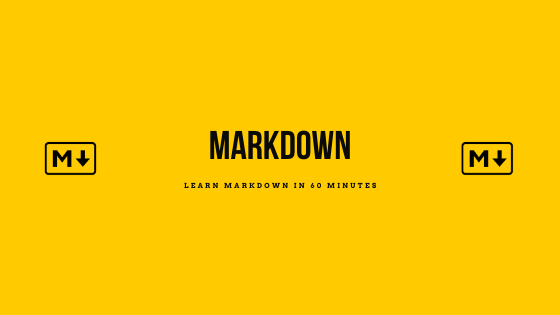Markdown Crash Course | Learn Markdown in 60 minutes + Markdown Cheatsheet
A comprehensive crash course and cheatsheet for Markdown. Learn how to use Markdown for websites, documents, notes, books, presentations, and more. Includes syntax, examples, and best practices.

Markdown Crash Course | Learn Markdown in 60 minutes + Markdown Cheatsheet
Author: Abhay Talreja
Published on: January 20, 2020
Markdown can be used for everything you can create—websites, documents, notes, books, presentations, emails, and even this blog article you are reading is in Markdown.
If you are interested in watching a video rather than reading, please check out my video on YouTube. The code that is used in the video is documented below in the blog for your easy access.
What is Markdown?
Markdown is a lightweight markup language that you can use to add formatting elements to plaintext text documents. Created by John Gruber in 2004, Markdown is now one of the world's most popular markup languages.
Why Use Markdown as opposed to a WYSIWYG Editor?
- Simplicity and speed
- Portability
- Readability
- Version control friendly
- Platform agnostic
Where can I use Markdown?
- Website Creation
- Document Creation
- Notes taking
- Books
- Presentations
- Emails
- Documentation
Markdown Syntax with Examples
Headings
# Heading 1 ## Heading 2 ### Heading 3 #### Heading 4 ##### Heading 5 ###### Heading 6
Heading 1
Heading 2
Heading 3
Heading 4
Heading 5
Heading 6
Alternate approach:
# This is Heading 1 (Alternate) ## This is Heading 2 (Alternate)
This is Heading 1 (Alternate)
This is Heading 2 (Alternate)
Paragraphs and Line Breaks
This is paragraph 1 This is paragraph 2
This is paragraph 1
This is paragraph 2
Horizontal Rule
--- --- ---
Emphasis
Bold:
This text is **Bold** This text is **Bold too**
This text is Bold This text is Bold too
Italic:
This text is _Italic_ This text is _Italic too_
This text is Italic This text is Italic too
Bold & Italic:
This text is **_Bold and Italic_** This text is **_Bold and Italic_** This text is **_Bold and Italic_** This text is _**Bold and Italic**_ This text is **_Bold and Italic_** This text is _**Bold and Italic**_
This text is Bold and Italic This text is Bold and Italic This text is Bold and Italic This text is Bold and Italic This text is Bold and Italic This text is Bold and Italic
Strikethrough:
This is a ~~Striked Text~~
This is a Striked Text
Links
[Abhay Talreja](https://www.abhaytalreja.com) [Abhay Talreja](https://www.abhaytalreja.com 'Abhay Talreja website link')
Reference-style:
[Abhay Talreja with reference][website] [website]: https://abhaytalreja.com
Auto-linking:
https://www.abhaytalreja.com <https://www.abhaytalreja.com>
https://www.abhaytalreja.com https://www.abhaytalreja.com
Images


Linking images:
[][my-website] [my-website]: https://abhaytalreja.com "Click to see Abhay Talreja's website"
Blockquotes
> This is a blockquote
This is a blockquote
Nested blockquotes:
> This is a blockquote > > > This is a nested blockquote
This is a blockquote
This is a nested blockquote
Lists
Ordered List:
1. Item 1 2. Item 2 3. Item 3
- Item 1
- Item 2
- Item 3
Unordered List:
- Item 1 - Item 2 - Item 3
- Item 1
- Item 2
- Item 3
Nested List:
1. Item 1 2. Item 2 - Nested Item 1 - Nested Item 2 3. Item 3
- Item 1
- Item 2
- Nested Item 1
- Nested Item 2
- Item 3
Code
Inline code:
Here is an example of inline code block - `var x = 10;`
Here is an example of inline code block - var x = 10;
Code block:
\`\`\` Here is an example of code block \`\`\`
<html> <head></head> <body></body> </html>
<html> <head></head> <body></body> </html>
Fenced code block with language:
<html> <head></head> <body></body> </html>
<html> <head></head> <body></body> </html>
Escape Characters
Escape special characters with a backslash:
| Character | Name |
|---|---|
| \ | backslash |
| ` | backtick |
| * | asterisk |
| _ | underscore |
| { } | curly braces |
| [ ] | brackets |
| ( ) | parentheses |
| # | pound sign |
| + | plus sign |
| - | minus sign |
| . | dot |
| ! | exclamation |
| | | pipe |
Happy Learning! Keep Sharing!
References:


